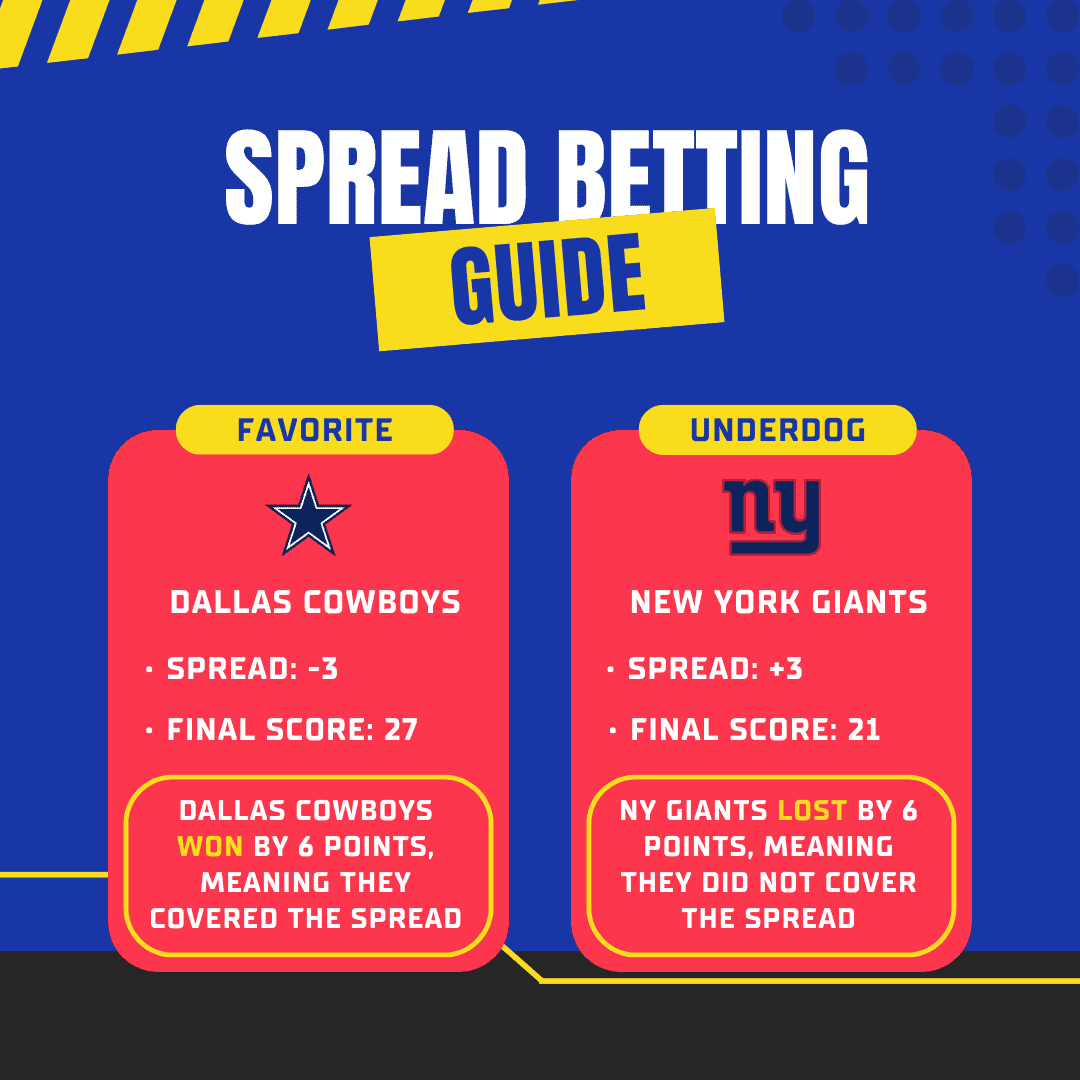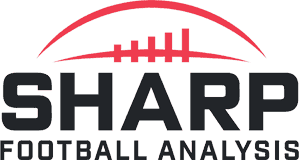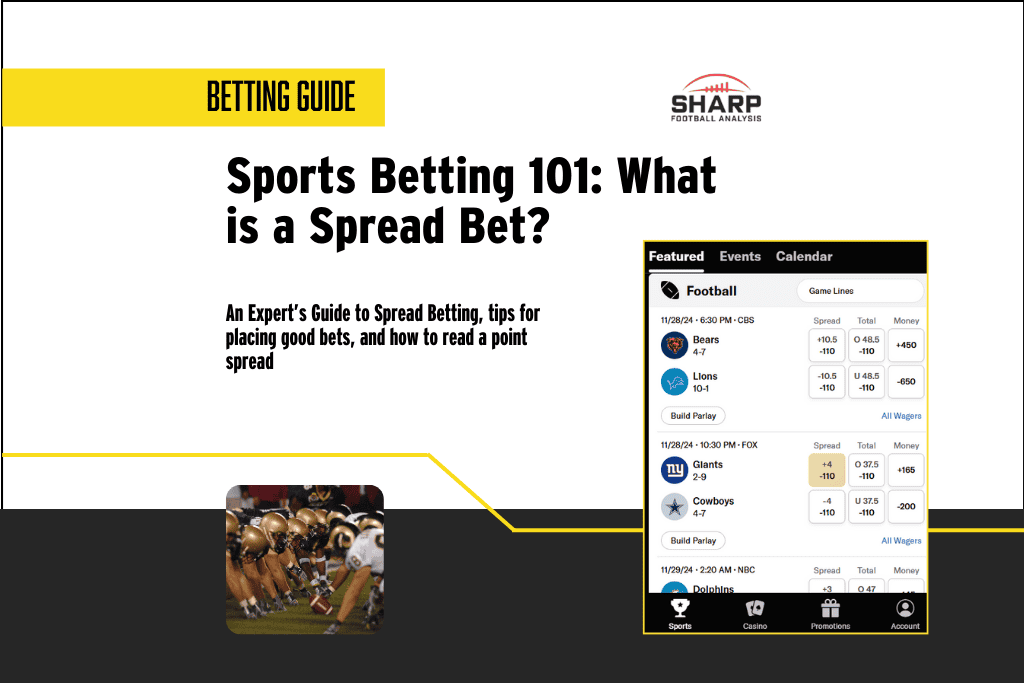If you've ever watched football or basketball, you've likely heard commentators mention a “points spread” or ask if a team will “cover the spread.” But what does that mean? What is a spread bet? In this guide, we'll break it down, explain why it's such a popular wager type, and provide examples, strategies, and tips to improve your betting game.
Understanding the Spread
A spread bet is a type of wager in which points are added or subtracted from a team's score to create a more balanced betting scenario. The favorite, slated to win, gives points, while the underdog, expected to lose, gets points. This levels the betting playing field, making the bet outcome not just about who wins but by how much.
Differences Between a Spread Bet and a Moneyline Bet
Unlike a moneyline bet, for a spread bet, the team has to cover the spread for the bet to be a winning one and not just win the game. In this type of bet a team can lose and cover the spread for a winning wager.
- Moneyline Bet: You win if your chosen team wins the game.
- Spread Bet: Your chosen team must “cover the spread” for your bet to win. The favorite must win by more than the given points, while the underdog can win outright or lose by fewer points than the spread.
Example of a spread bet
In the big NFC East rivalry game above, the Cowboys are the favorite, shown by the -3 in front of the number, and they have to win by four or more points to cover the spread (win the bet). Here's what that looks like:
- New York Giants: +3
- Dallas Cowboys: -3
The Giants are the underdog, shown by the + in front of the number, and they have to win the game or lose by less than three points to cover the spread. If the final score is Cowboys 27, Giants 21, the Cowboys win by 6 points. This means:
- The Cowboys covered the spread, making bets on them winners.
- The Giants failed to cover the spread, resulting in losing bets.
You might also see a .5 after the number for games with a spread. As you cannot score half a point in football or basketball, the .5 removes the tie (called “pushes”).
- For instance, if the Cowboys win 24-21 with a spread of -3.5, they fail to cover because they didn’t win by 4 or more points.
- Conversely, a spread of +3.5 for the Giants means they cover even if they lose by 3 points.

Unlike a moneyline bet, the spread bet has an even payout. You can also use spreads as part of a parlay wager.
Advantages of Spread Betting
Spread betting can be advantageous if you think the underdog is better than the points they are getting or if you think the favorite is better than the points they are giving. If you can pinpoint why you believe either of these things is the case, the spread might be a good idea.
- Leverages Underdogs: If you believe an underdog is stronger than the spread suggests, you can find value in betting on them
- Amplifies Matchups: When betting on favorites, spread betting ensures they perform well enough to justify the hype
- Enhanced Strategy: Spread betting rewards deeper analysis, making it a favorite among knowledgeable bettors
How to Place a Successful Spread Bet
Like any bet type, you need to handicap a game to be better informed about the bet to make. For football, it is important to look at player injuries, especially key players, team and player form, home and away records, weather, team and player stats, and how the team has fared against the other in the past.
It is simple to make a spread bet. For example, you can create an account with the BetMGM bonus code, then head to the NFL betting section, where the Minnesota Vikings are a 3.5-point favorite over the Chicago Bears. Those who don't have access to sports betting can opt for state lottery games, such as those at the Michigan Lottery.
- Minnesota Vikings: -3.5
- Chicago Bears: +3.5
The Vikings are having a stellar season at 8-2, while the Bears are struggling at 4-6. You’re confident the Vikings will dominate and place your bet. For your wager to win, the Vikings must beat the Bears by at least 4 points.
Tips for Making a Spread Bet
- Research your bet in advance: Handicapping a game is important. That is the best tip, as with a little research, you can make a more intelligent bet that is more likely to win.
- Get the timing right: Another tip is when to make a bet. The betting public likes to bet on the favorite more often than not. The spread can change during the week depending on how the public bets on the game.
- For example, the Kansas City Chiefs open as a 7.5-point favorite against the L.A. Chargers. The Chiefs are playing great this season and are the defending Super Bowl champion. As favorites, the public will likely bet more on them, so mid-week, the spread may change to them being an 8-point or 8.5-point favorite.
- Focus on value: Look for spreads that seem misaligned with your analysis and capitalize on easy wins.
- Watch line movements: The sportsbooks shift the spread to get even money bet on the game, so they will make money. Because of this, it's a good idea to bet early in the week if you plan on betting on the favorite and later in the week if you want to bet on the underdog.
Money Management and Bankroll Protection: Stay in Control
Like any other betting, spread betting requires smart money management. Here are my suggestions:
- Set a budget: Have a bankroll for a season, such as the NFL, and stick to it. Only bet what you can afford to lose.
- Never chase losses: Don't get emotional and bet more on the next game to try to recoup losses from the previous one.
- Be safe: Always play at legal sportsbooks in your state, and always remember to gamble responsibly.
Conclusion
In this article, we have answered your question of what is spread betting? It is the favorite giving points and the underdog getting them. The favorite has to win by more than the spread, while the underdog has to win or lose by less than the spread. Remember that with betting, nothing is guaranteed; however, this can be a fun way to place a bet, and you might just cover the spread.
What happens when a game lands exactly on the spread?
Does it matter who wins if you bet the spread?
Can you parlay spread bets?
Is there a minimum/maximum bet amount?
-
Minimum bets typically range from $0.50 to $5, depending on the sportsbook
-
Maximum bets vary widely based on:
-
The sport and league
-
How close to game time the bet is placed
-
The sportsbook's policies
-
The bettor's history and status with the sportsbook
-
-
Professional sports typically have higher limits than college sports
-
Major events like the Super Bowl often have the highest betting limits


